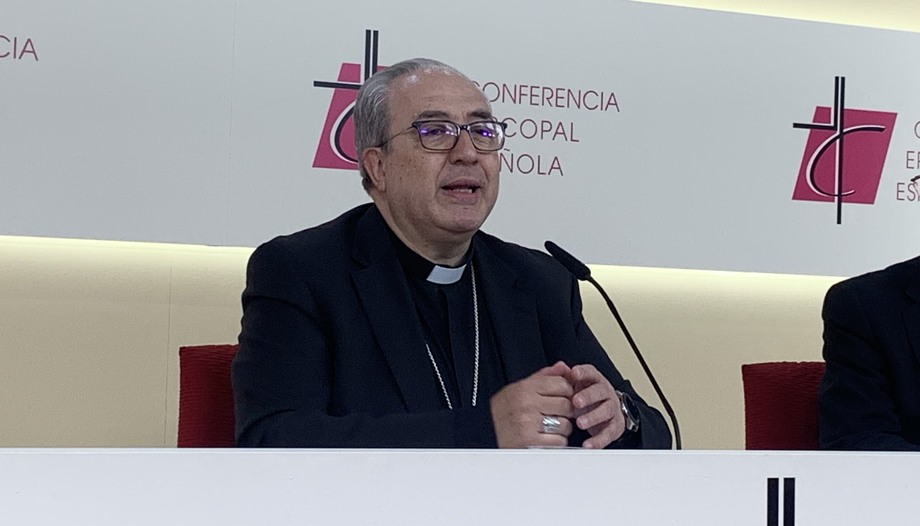The press conference at the end of the Permanent Commission of the Spanish Episcopal Conference The meeting of the bishops had two central topics beyond the actual topics discussed at the meeting: the reopened debate on surrogacy and the updating of data on sexual abuses committed within the Church from 1945 to the present day.
Apart from these issues, Francisco Cesar García Magán wanted to highlight three current issues in the Spanish Church. In the first place, and joining the feelings of a large part of the Church, the secretary of the Spanish bishops wanted to show the closeness of the Spanish Church's prayers to Pope Francis during his recent hospitalization and asked for prayers for his speedy recovery.
He also referred to the exchange of notes between the Spanish Church and the Spanish Government updating the agreement on economic matters between the Holy See and the Spanish Government whereby the Church waiver of one of the tax exemptions that were recognized in the 1979 agreement: exemptions from the Special Contributions and the Tax on Constructions, Installations and Works. By this agreement, the Church is placed in a position comparable to that of foundations: without tax privileges or discrimination.
He also spoke about the report "To give light" which the Episcopal Conference, on its own initiative, has delivered to the Spanish Ombudsman and which includes the 706 cases that have been reported to the offices of the Church. A report that shows the commitment to fight against the social scourge of child abuse.
"Being a parent is a gift"
Questioned about the position of the Church with respect to the surrogacyGarcía Magán wanted to emphasize that "above all, motherhood is a gift, not, strictly speaking, a right".
Although the secretary understands "the understandable pain of those women who want to have a family and cannot", it must be taken into account that "pregnant women are not incubators" and he also defended that although today "technically many things can be done, not everything that is possible is ethically feasible".
As he also wanted to emphasize, "it is not a question of denying something to the woman, but in defense of the dignity of the pregnant mother and the child".
New testimonies of abuse
The next big topic of the press conference was the release of the data on cases of sexual abuse that have been submitted to the Ombudsman. In total, the EEC is aware, for the moment, of 706 cases. The Spanish bishops have pointed out that in 2022, 186 new testimonies on cases of abuse committed between 1950 and 2022 have become known.
Of the 186 cases, 70 were reported to diocesan offices and 116 to the offices of religious congregations. The offices have a pastoral dimension of welcoming and accompanying, they do not carry out trials or pass judgments, so the presence in the office of the cases does not determine either innocence or guilt, which is a matter for the civil and/or canonical judicial authorities.
When the case requires it, the Office urges the presentation of the case to the courts or brings it to the attention of the civil or canonical courts.
In relation to the victimizer, there are 74 consecrated clerics, 36 diocesan clerics, 49 consecrated non-clerics and 27 lay people. All the perpetrators are male. Of these, 90 are deceased, 69 are alive and 27 are unaccounted for.
Regarding the victims, 179 were minors at the time of the events and 7 were legally equivalent to minors. Currently, 166 victims are of legal age, 16 are minors and 4 victims are legally equivalent to minors.
An important fact in this regard is that 123 dioceses and congregations already have a protocol for the prevention and treatment of abuse. In addition, codes of ethics and best practices for the care of victims are being developed and are already available in 95 dioceses and congregations.








